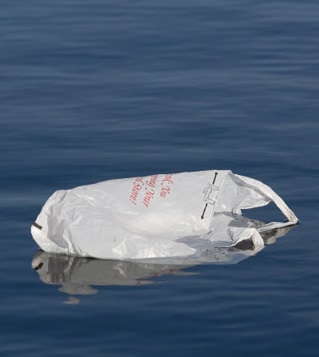Plastic study finds temperature effect
 A new study warns that warmer oceans and plastic chemicals could change how fish grow.
A new study warns that warmer oceans and plastic chemicals could change how fish grow.
Fish appear to grow at slower rates and require more energy from food as a result of global warming combined with plastic pollution, according to Australian and international researchers.
When an environmentally relevant concentration of Bisphenol A - a chemical from plastic pollution - leeches into the ocean, it can disrupt hormone regulation for fish at specific temperatures, a new study suggests.
The research found that while Bisphenol A can decrease the amount of energy a fish needs to grow if the water is 24 degrees Celsius, at around 30 degrees Celsius it can hamper the growth of a fish.
This means warmer water as a result of global warming could combine with Bisphenol A levels to affect the size of and population of fish species, including some of the most commercially valuable.







 Print
Print